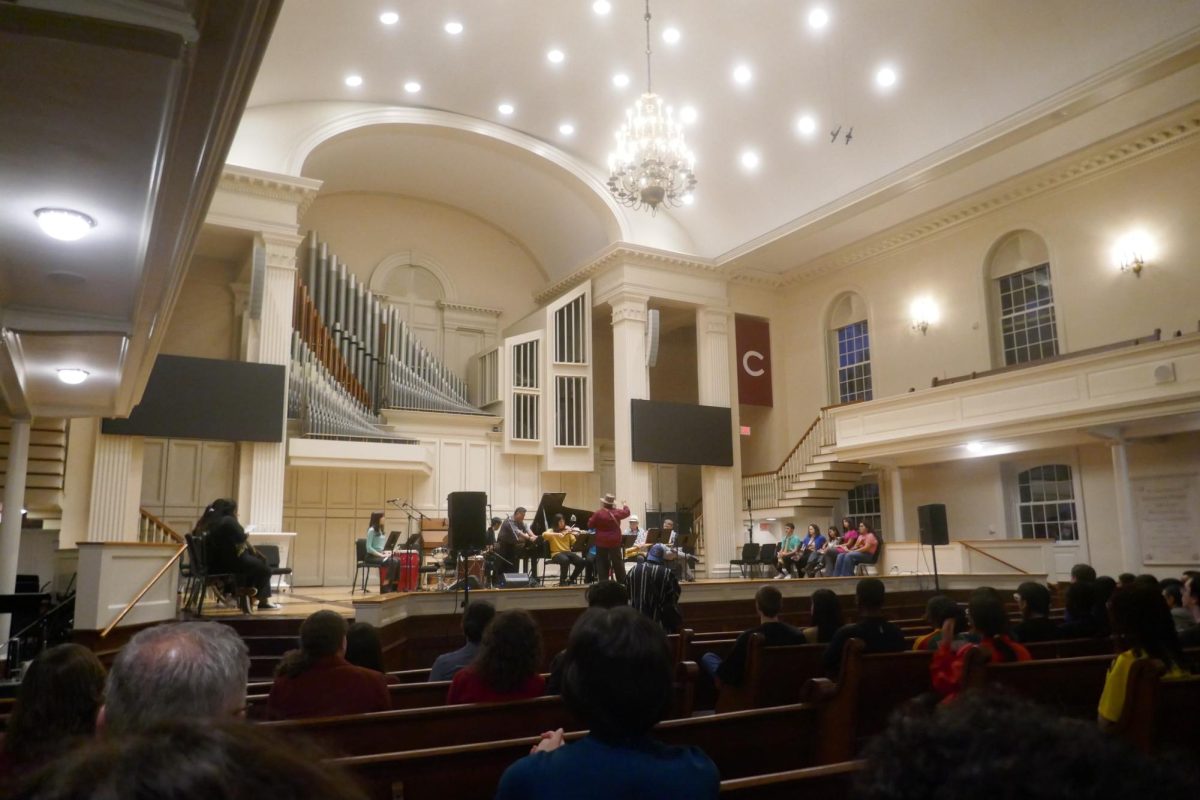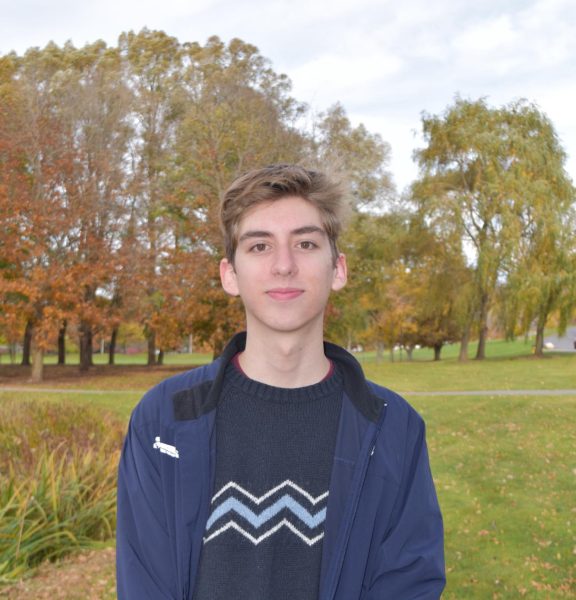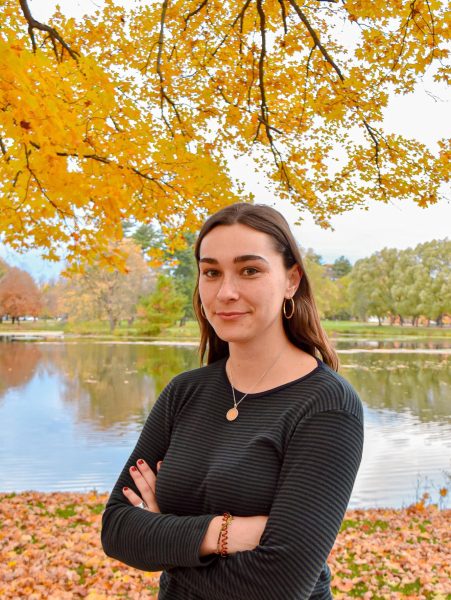Michelle Bigenho, Charles A. Dana professor of anthropology and Africana & Latin American studies, first crossed paths with Rolando Encinas in 1993 in Bolivia while conducting her doctoral research. A classically trained musician, Bigenho joined Encinas’ Bolivian orchestra, Música de Maestros, when they were in need of a violinist. Over the years, she has returned to Bolivia each summer to play with the ensemble.
On Sept. 27, the Africana & Latin American Studies (ALST) department at Colgate University hosted a Bolivian music concert that marked the culmination of the residency of musicians from Música de Maestros. Students joined the Bolivian musicians, who had taught students the art of playing traditional Bolivian Indigenous panpipes and flutes. The concert was particularly significant as it followed a four-year pause due to the COVID-19 pandemic.
“Every time I go it’s new repertoire, which is great, a wonderful challenge,” Bigenho said. “[Encinas] is a master teacher of music, as well as being an amazing musician himself. […] I had come into music through classical training, and so I came with that training, but I definitely learned so much more about being a musician from him than I had learned in all my years of classical music training.”
The course, ALST 204 “Performing Bolivian Music,” was taught jointly by Bigenho and Encinas with other Música de Maestros musicians, but it diverged from typical music courses. Only about half of the students had a musical background, but the course focused on absorbing knowledge and experience from the instructors rather than emphasizing classical music skills such as sight reading. The course drew a wide range of students, from those interested in ALST to sociology, and was run bilingually in Spanish and English, as Bigenho translated.
“It’s a different kind of teaching. It is about memory and repetition and ear listening; listening carefully and trying to memorize a tune,” Bigenho said. “So for me, it’s also a very different kind of course to teach because most of the courses I teach are very much focused on texts and writing and thinking analytically. This course taps into a whole other side of ways of learning that I think is incredibly special for the students.”
The concert concluded the residency of the Bolivian musicians and was a testament to the community-oriented and ever-changing nature of Bolivian music and performance. Students from ALST 204 joined Música de Maestros to perform Bolivian music, including pieces composed by Encinas. While students played Bolivian Indigenous panpipes and flutes, other instruments included the violin, flute, saxophone and more.
Junior Abigail McGuire was one of the students that took part in the course.
“We kept changing the program and music right up until the actual concert,” McGuire said. “Changes were made as the audience filed in. It is extremely loose and independent, but also very community-based and requires constant communication. It radically shifted how I understood music to be learned and performed.”
The music that the group performed is commonly played within communities during times of festivities and is closely linked to the indigenous agricultural calendar. For example, traditional flutes from the Andes region align with their corresponding wet or dry seasons. When playing traditional indigenous instruments such as the sikú, a panpipe, it is common for performers to share a melody as together they form a complete scale. During some songs, students danced together on the stage and used call-and-response singing, a characteristic of Saya, which reflects Afro-Bolivian identities and traditional Andean music.
Senior Juan Flores reflected on how the performance came together at the final concert.
“I think the concert was pretty good,” Flores said. “It was a good demonstration of their instruments. I think events like these are really good because it gives a new perspective on other places and cultures.”
The residency was Música de Maestros’ third at Colgate after coming in 2017 and 2019, but this year’s residency marked their return after a pause due to COVID-19. ALST Community Program Coordinator Pascal Dafinis worked with the musicians to make sure that they could smoothly come to the United States.
“I’m so happy that they got a chance to perform because they took many hours to work on this,” Dafinis said. “When you graduate, you will probably not get a chance to interact with Bolivian musicians or pan flute players — it’s for the memories.”
For the group, it was a chance to introduce students to a form of music that isn’t always offered.
“I want to thank those who have supported this project in the university that has made it possible to disseminate Bolivian music and music from Latin America. It is about sparking an interest among young people, about igniting the desire to learn more about my country, Bolivia,” Encinas said, translated from Spanish to English by Bigenho. “The young people who play or don’t play any instruments before the class, end the class discovering something about themselves, discovering a talent of their own.”
For students in the course who hadn’t learned an instrument before such as senior Gifty Afrifa, the experience went far beyond just learning musical repertoire.
“Music is ingrained in Bolivian culture and helps bring the community together by creating a sense of belonging. We got to experience that sense of belonging in such a short amount of time,” Afrifa said. “This course was an unforgettable experience that has left me with so many skills and memories and wanting to learn more about music and Bolivian culture.”


















